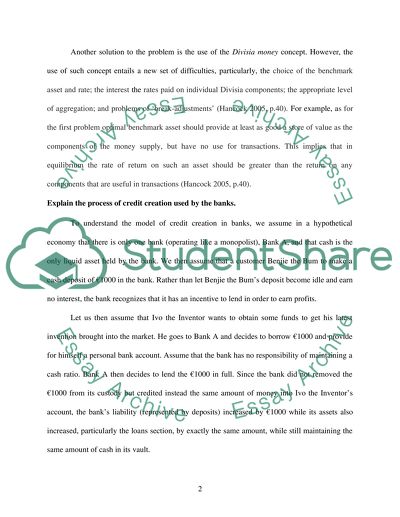Discussion of the problems in monetary control that the Bank of Essay. Retrieved from https://studentshare.org/miscellaneous/1511373-discussion-of-the-problems-in-monetary-control-that-the-bank-of-england-faces
Discussion of the Problems in Monetary Control That the Bank of Essay. https://studentshare.org/miscellaneous/1511373-discussion-of-the-problems-in-monetary-control-that-the-bank-of-england-faces.


